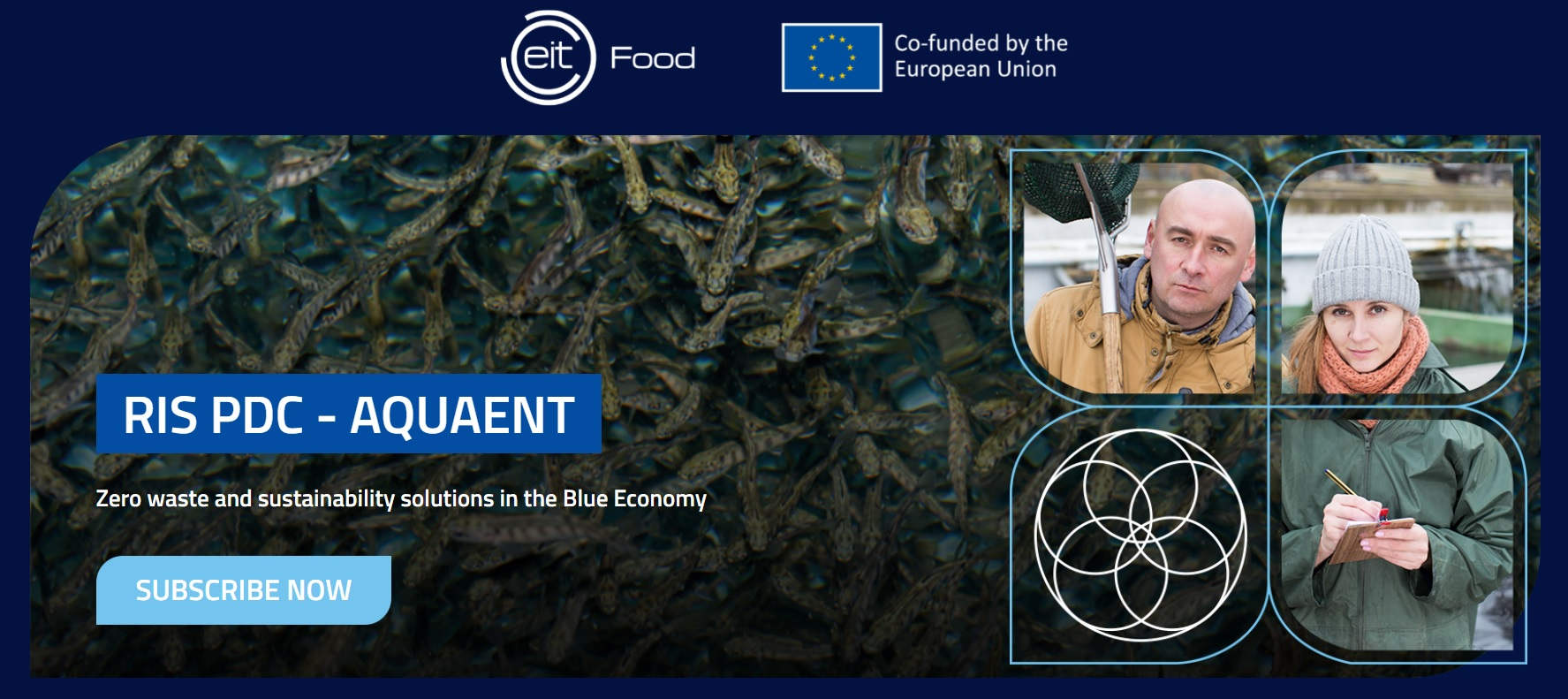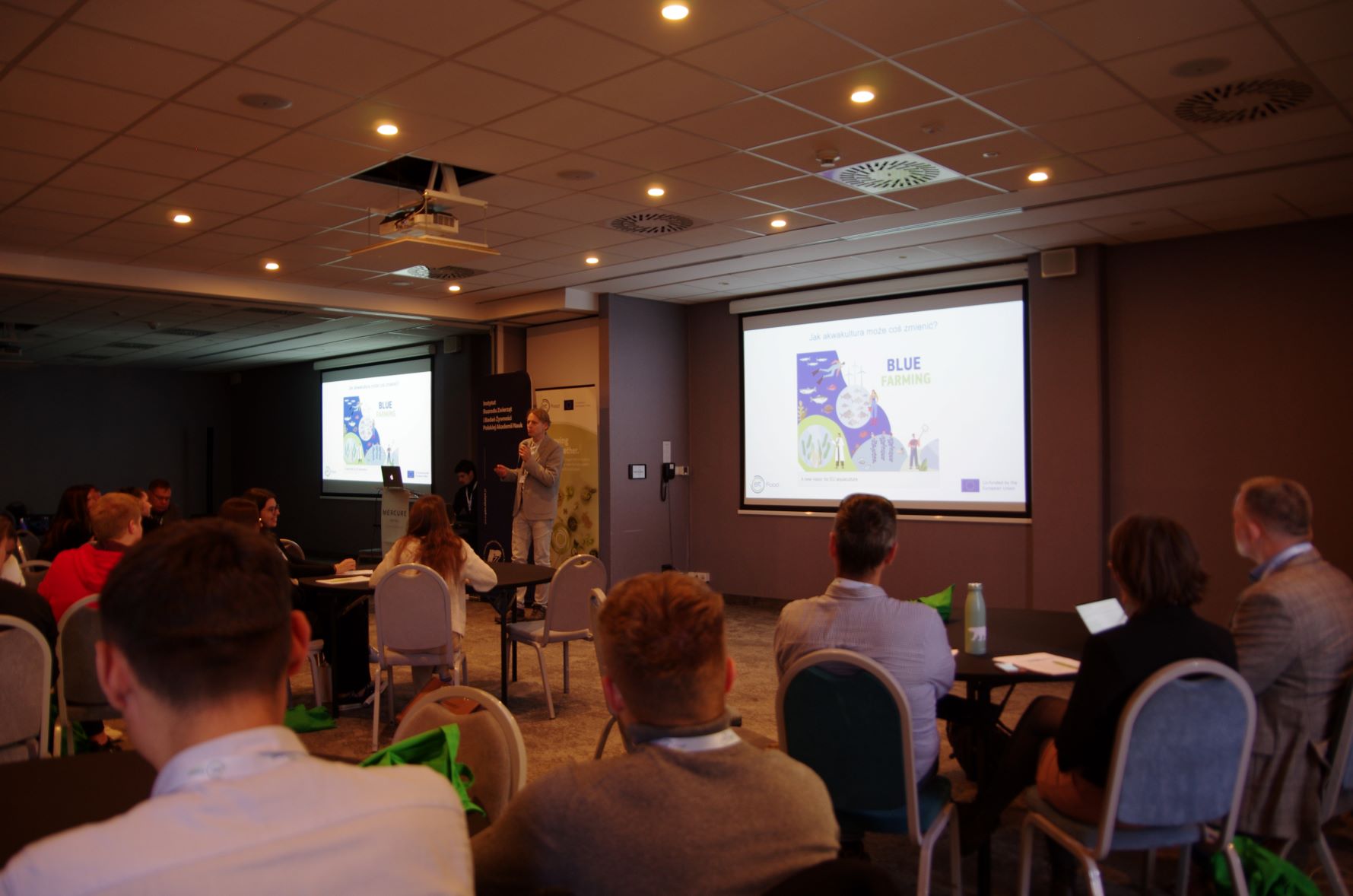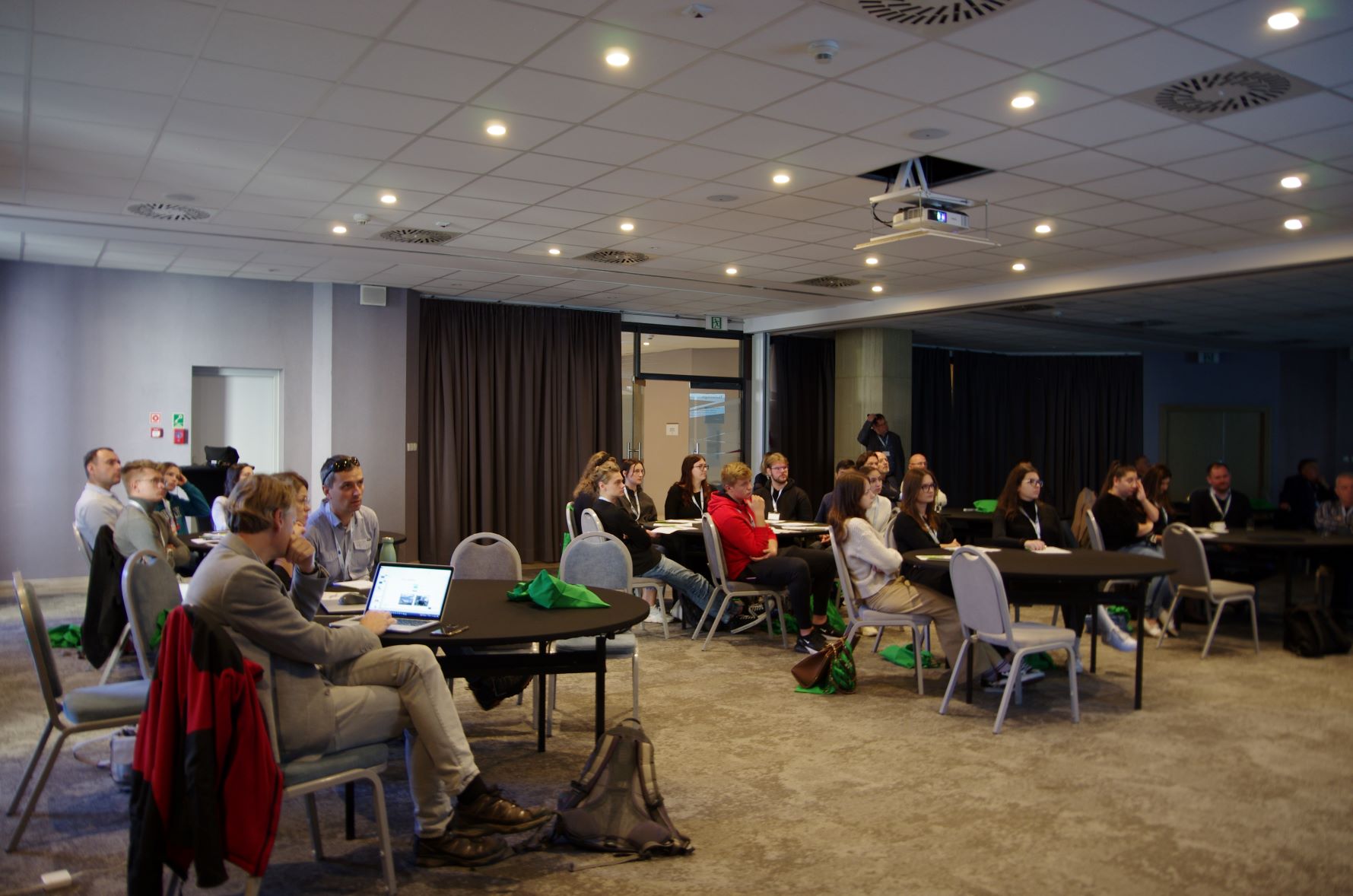
AQUAENT – aquaculture in times of global challenges – under such a title, a workshop organized by our scientists within the framework of the EIT Food project AQUAENT- Support for small and medium enterprises in RIS regions in aquaculture, was held in Gdynia on October 12.
Go to AQUAENT website
The workshop topics touched on the most current issues related to the sustainable breeding of aquatic organisms. Konrad Ocalewicz from the University of Gdansk discussed the topic of genetic pollution of the environment and biotechnological methods of protecting gene pools of wild-living fish. Ziemowit Pirtań from the Trout-Tarnowo Fish Farm presented aspects of renewable energy and the possibility of energy storage in aquaculture – futurology or actions necessary for the industry’s survival in the energy crisis.

In turn, Radosław Kowalski of the Department of Gamete and Embryo Biology of the Institute of Animal Reproduction and Food Research Polish Academy of Sciences focused on the issue of multitrophic aquaculture and the related possibility of intensifying production in fresh and salt waters. Tomasz Kolankowski of KOL-tech Solutions discussed the options of inlet water quality monitoring in fish farms, which protects farming from environmental disasters. Other speakers included scientists and experts from Iceland, including from the Matis research institute. Hildur Inga Sveinsdottir touched on using enzymes and proteins in fish waste to create innovative medicinal products and dietary supplements. Saemundur Eliasson, on the other hand, presented the possibilities of using geothermal energy in fisheries and aquaculture.
A discussion with the participants accompanied each presentation.

Thanking the experts and participants for their involvement, we already invite you to the next training, which will be held on November 17 in the online form (in English). We will touch on the topics discussed at the October 12 training. Still, we will also learn about the assumptions of the innovative Salmocross project and its potential for implementation in aquaculture, which Martyna Sas will present from the Tarnowo Trout Fish Farm. Registration link.
Program of the workshop on November 17, 2022
10.00 – 10.10 Welcoming the participants, Marek Bogacki, Institute of Animal Reproduction and Food Research, Polish Academy of Sciences, Olsztyn, Poland
10.10 – 10.50 Renewable energy and the potential of energy storage in aquaculture – futurology or activities necessary for the industry’s survival in times of energy crisis? Ziemowit Pirtań, The fishing farm „PSTRĄG TARNOWO”, Tarnowo, Poland
10.50 – 11.30 Salmocross – an innovative research and implementation project in aquaculture. Martyna Sas The fishing farm „PSTRĄG TARNOWO”, Tarnowo, Poland
11.30 – 12.10 Multitrophic aquaculture – possibilities of intensifying production in fresh and salt waters. Radosław Kowalski, Institute of Animal Reproduction and Food Research, Polish Academy of Sciences, Olsztyn, Poland
12.10 – 12.50 Genetic pollution of the environment and biotechnological methods of protecting gene pools of wild-living fish. Konrad Ocalewicz, University of Gdańsk, Gdańsk, Poland
12.50 – 13.30 The use of enzymes and proteins in fish waste to create innovative medical products and dietary supplements. Margret Geirsdottir, Lysi-Life, Zymtech Enzymatica Aktieägare, Icelandic Food and Biotech R&D, Reykjavík, Iceland
13.30 – 14.10 The use of geothermal energy in fisheries and aquaculture. Saemundur Eliasson, HS Orka and Haustak, Icelandic Food and Biotech R&D, Reykjavík, Iceland